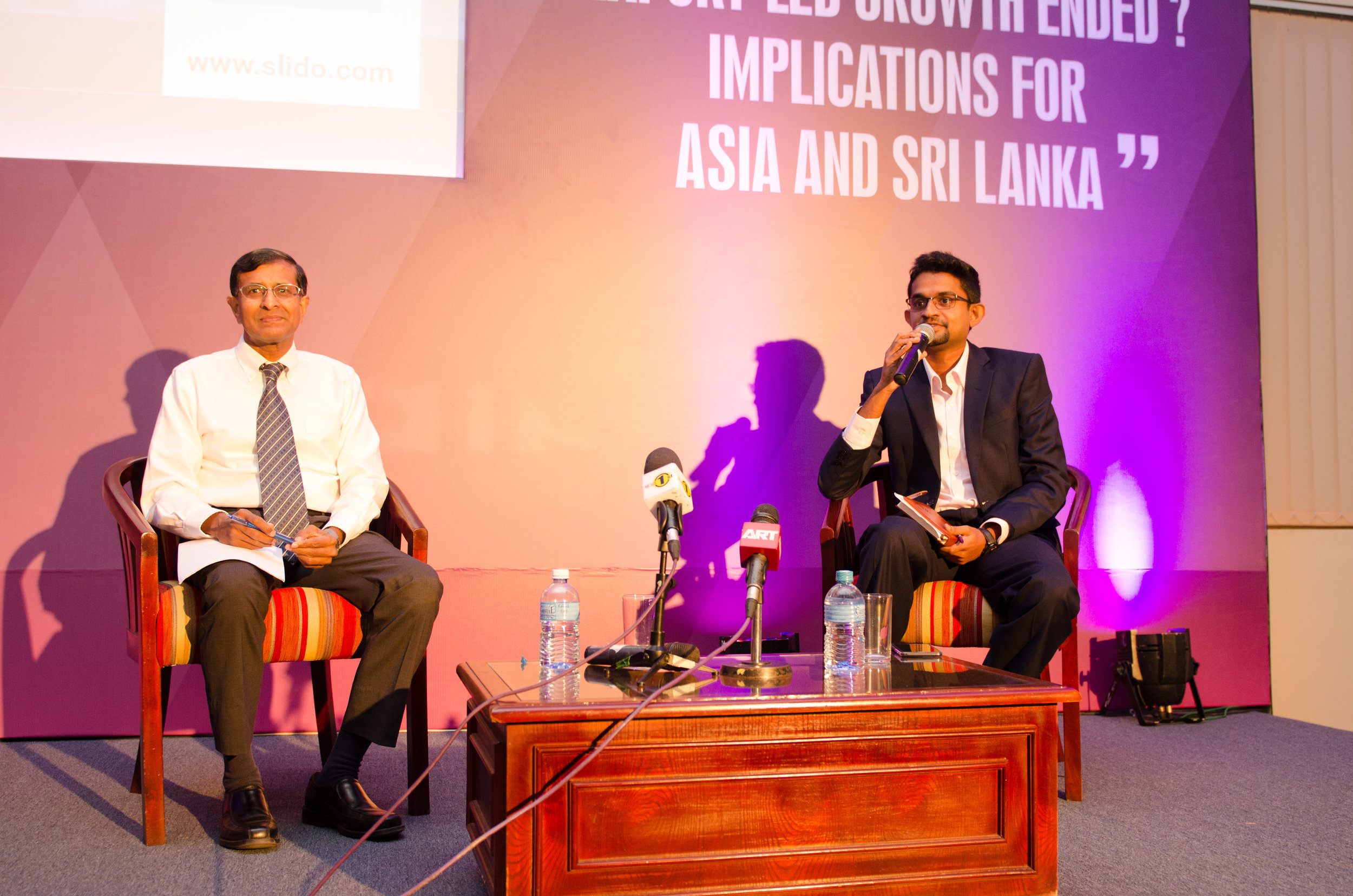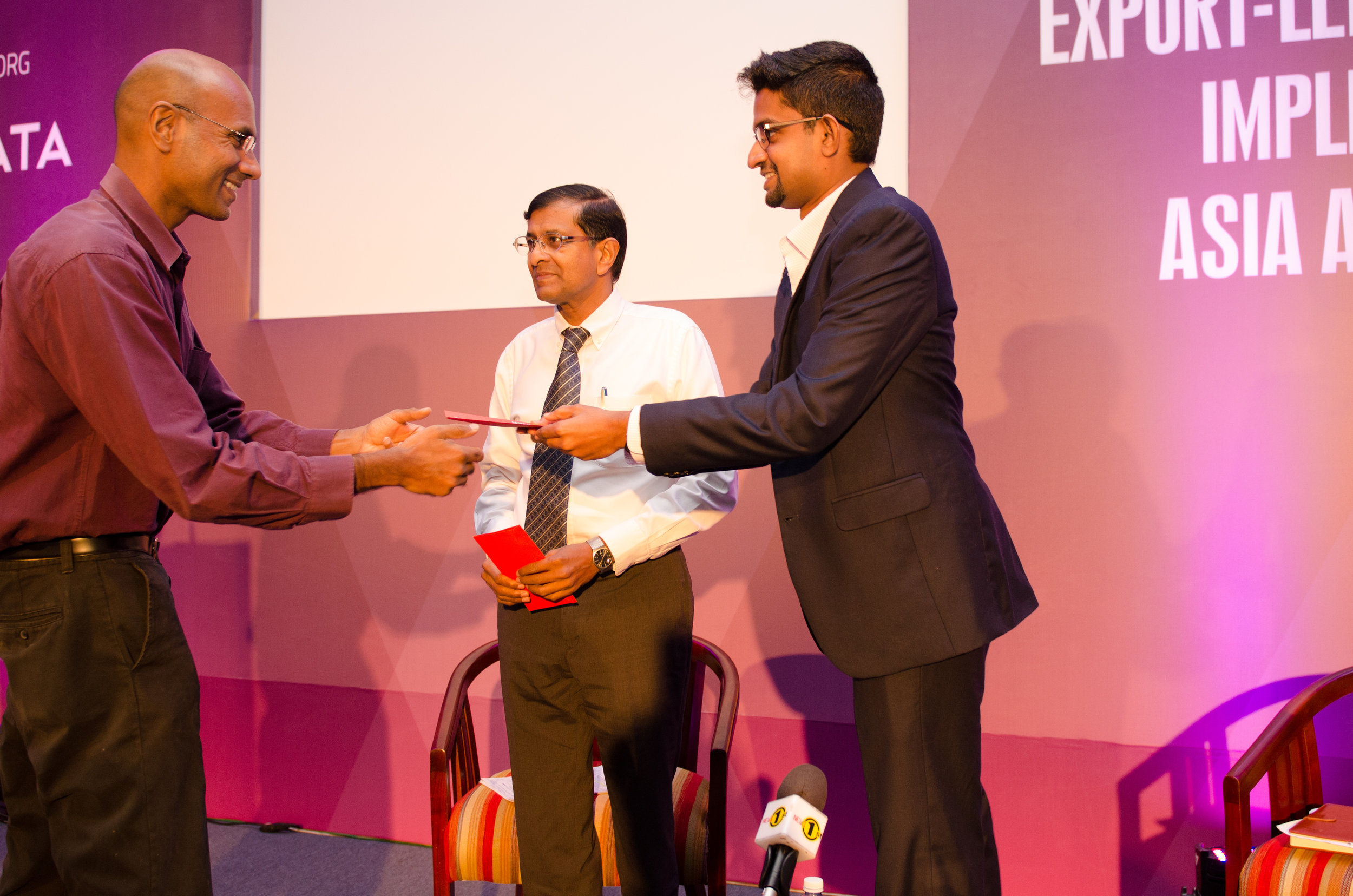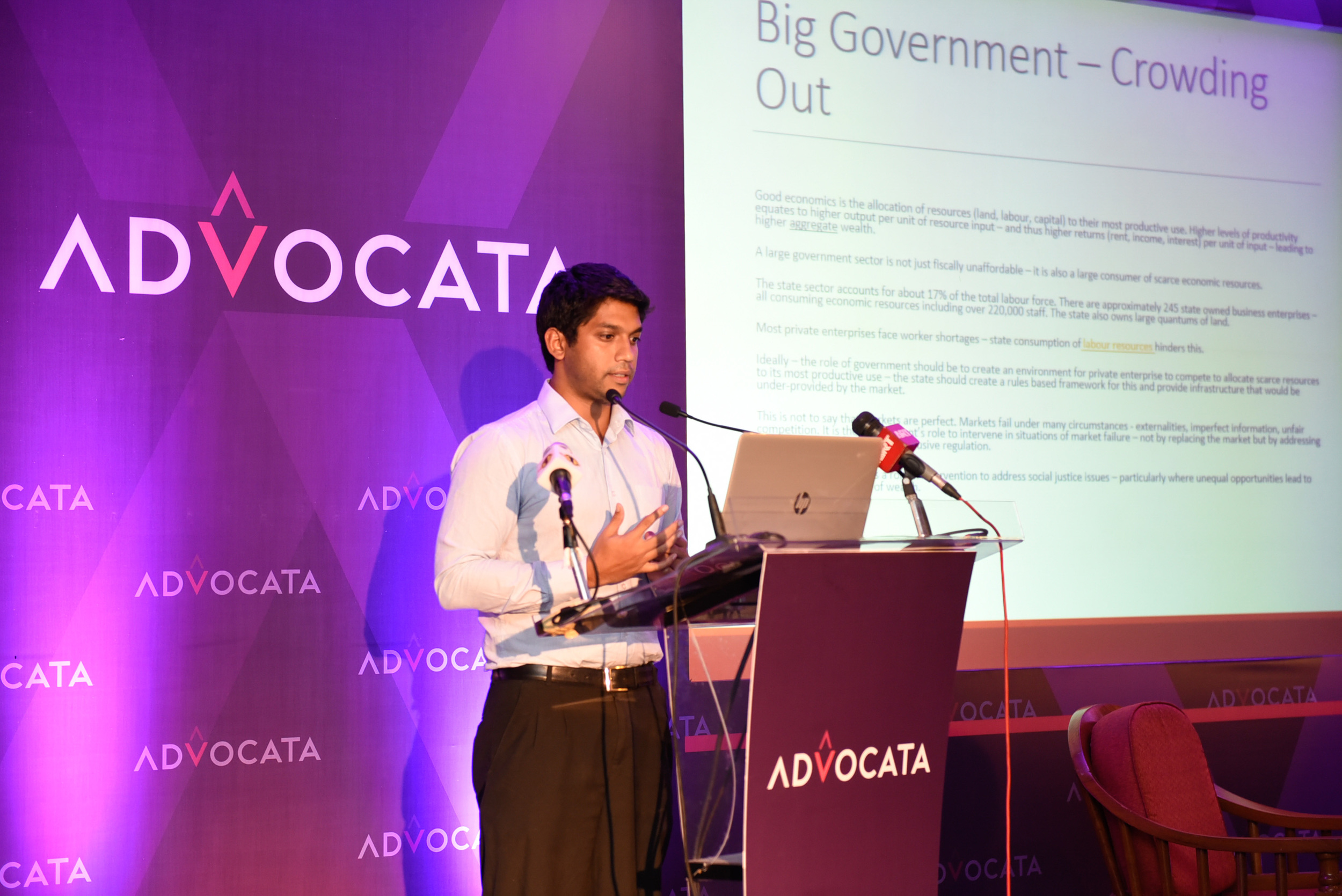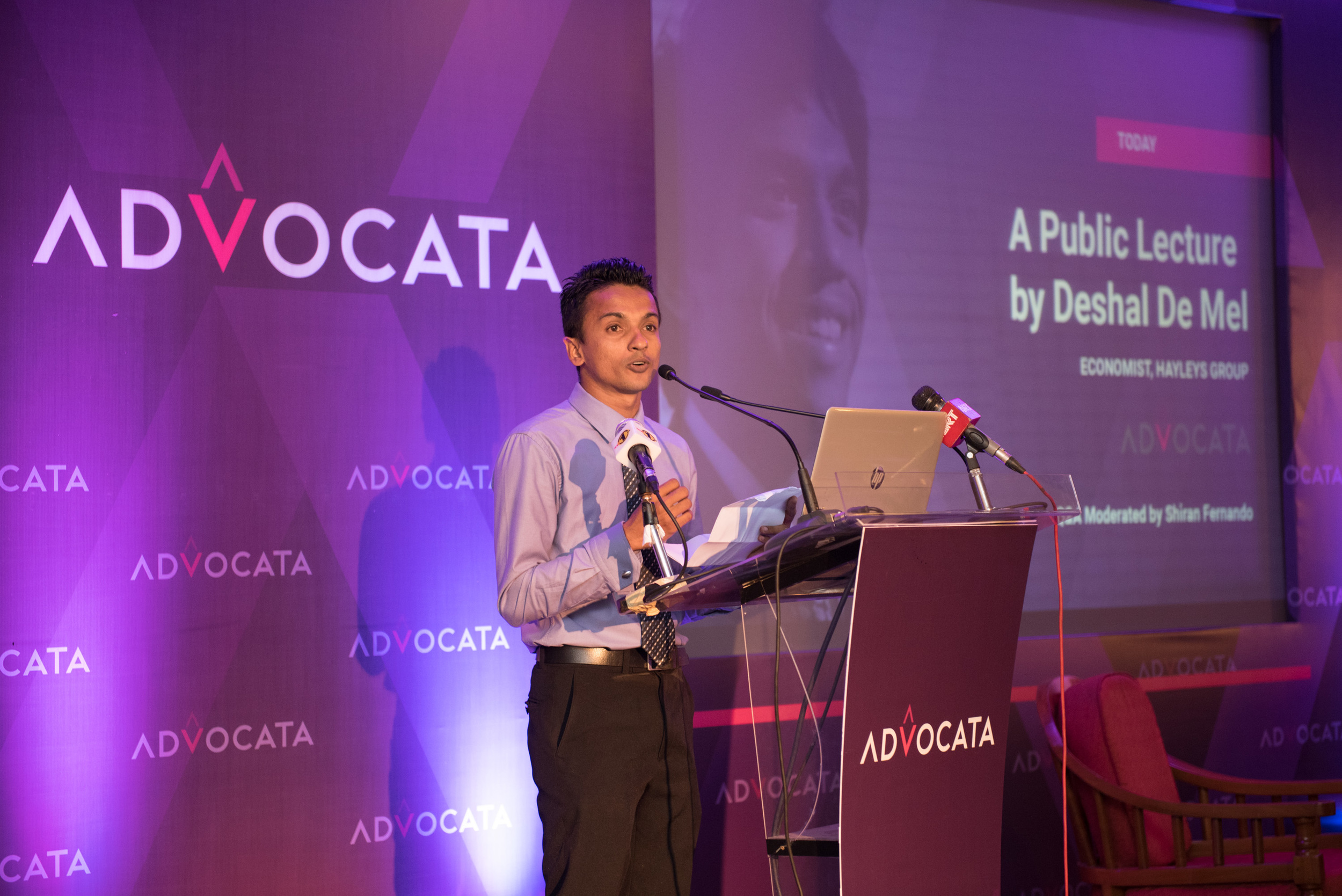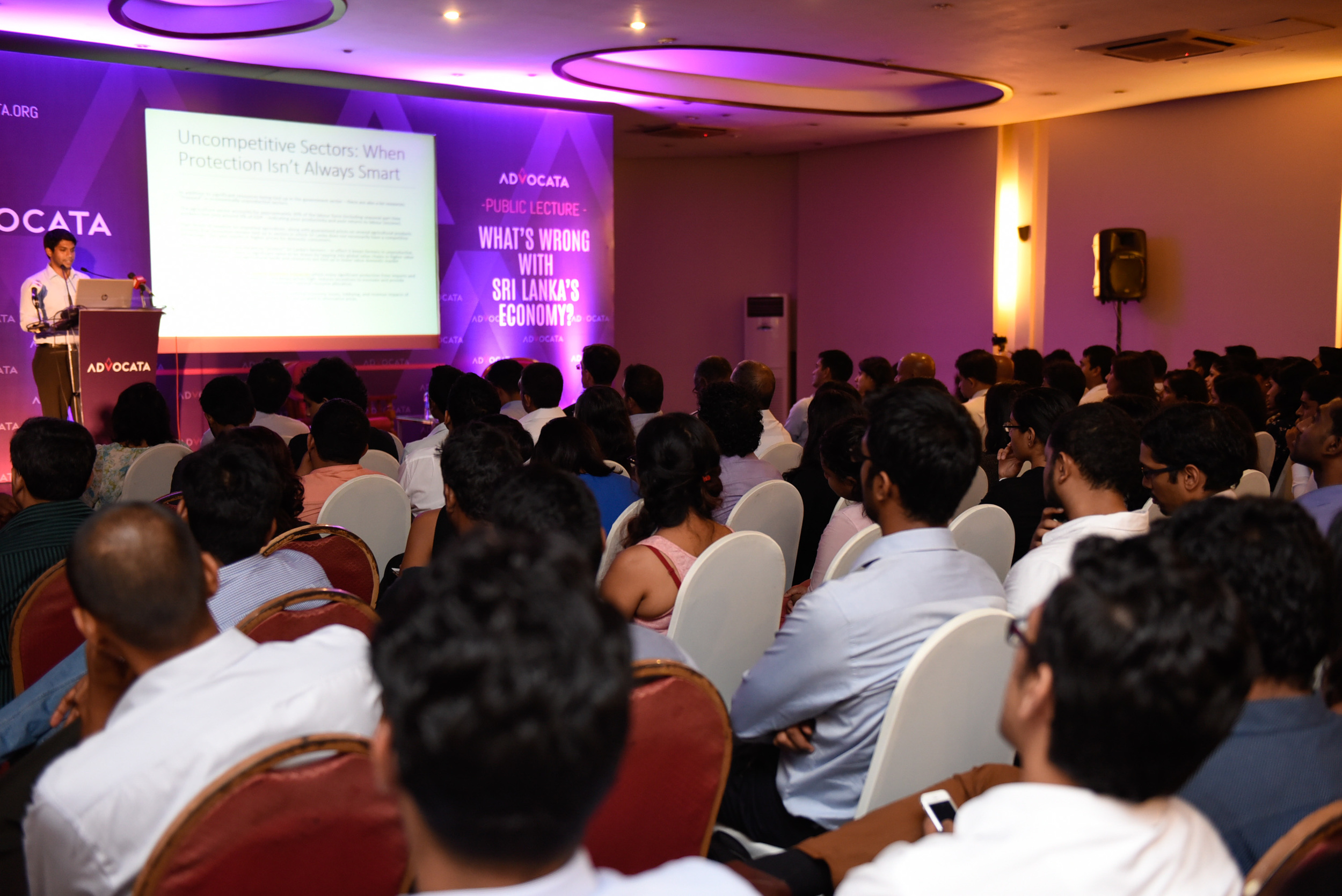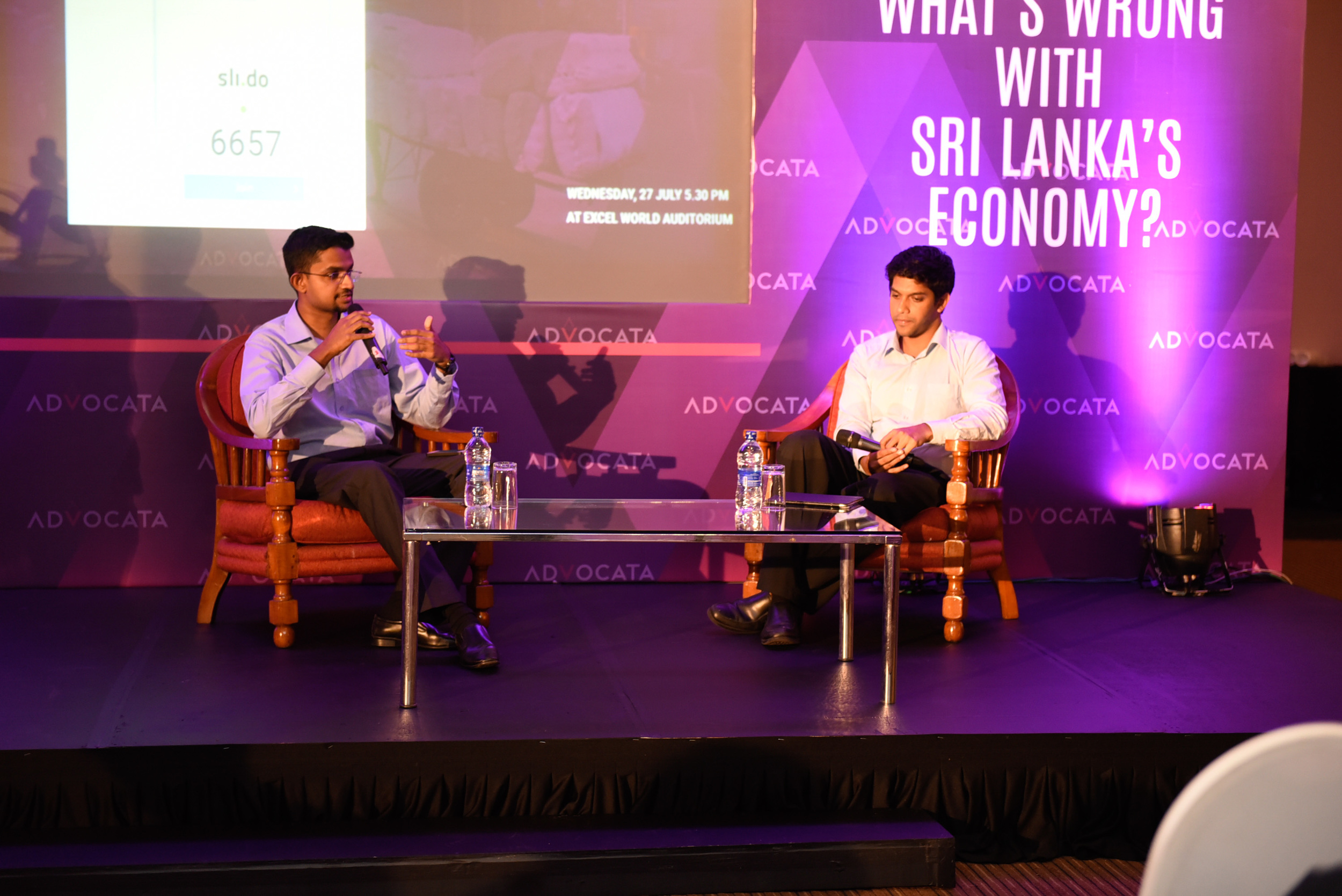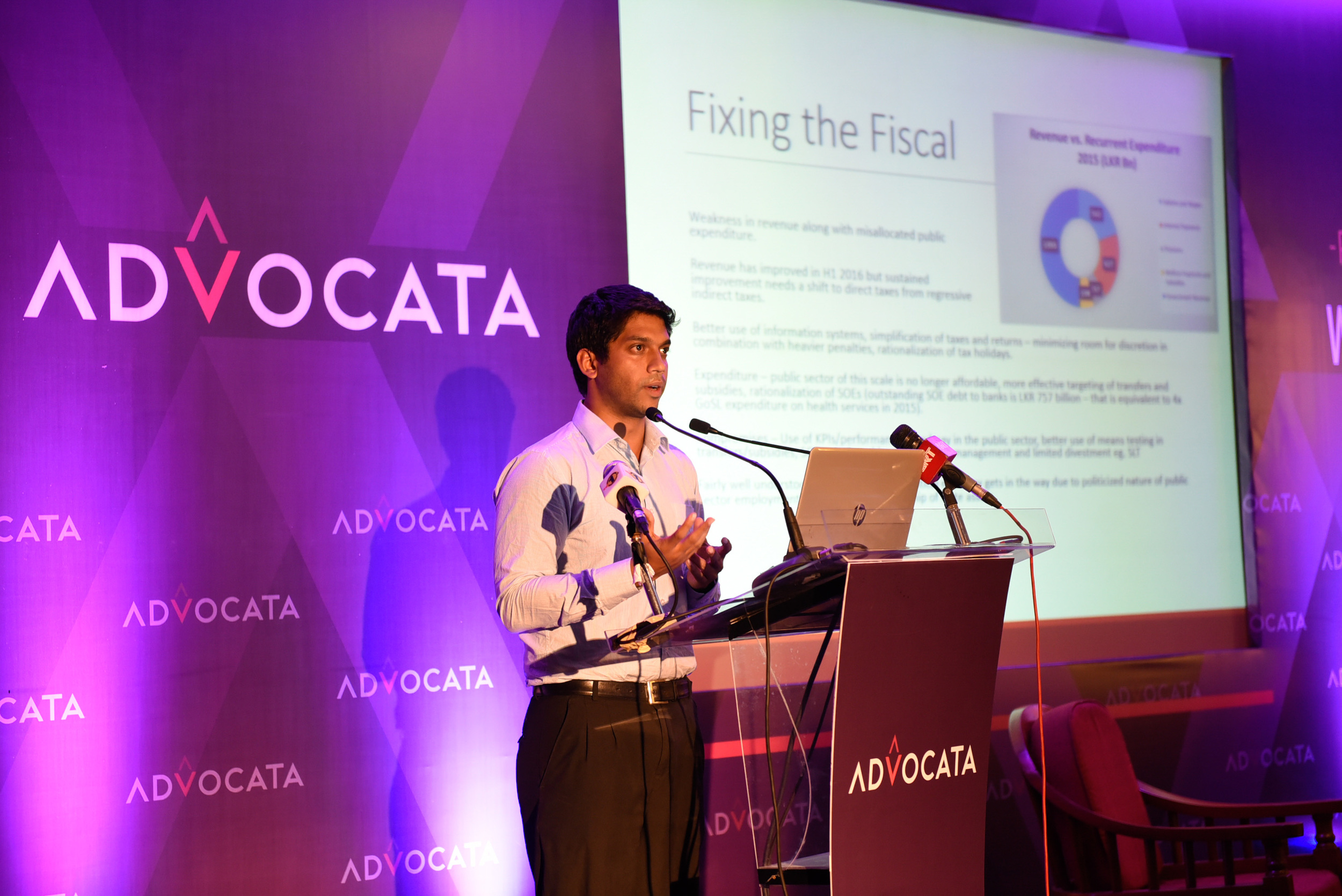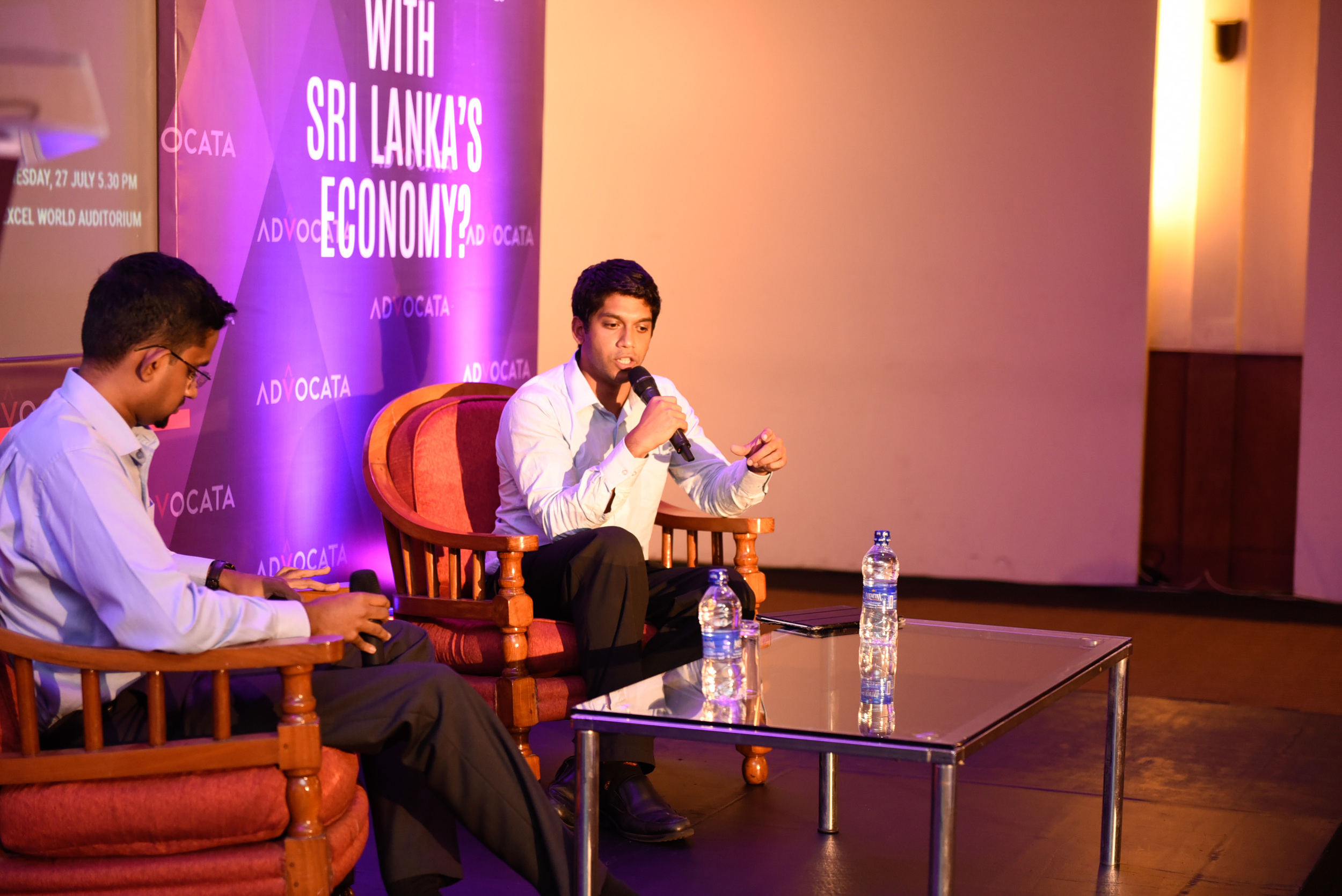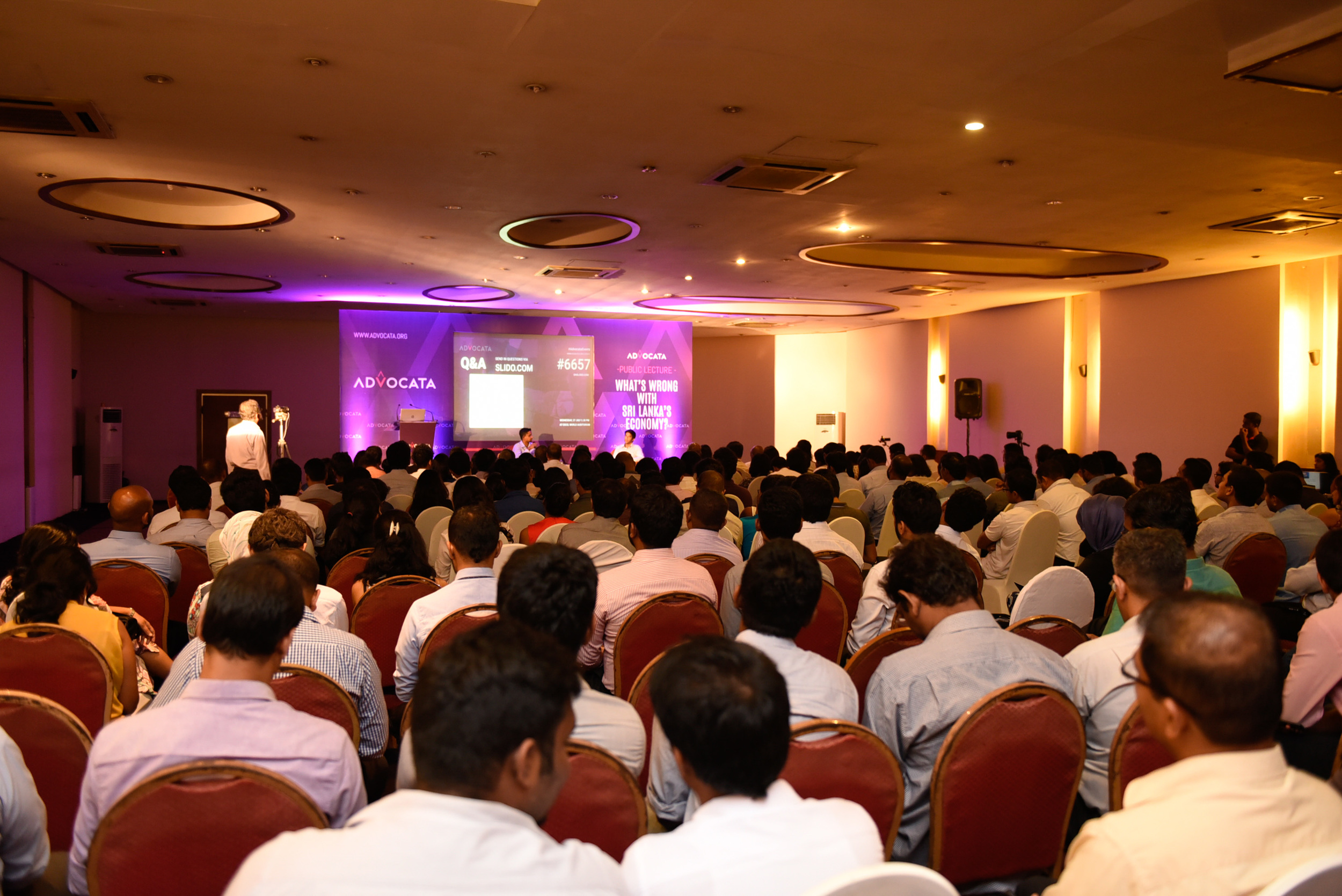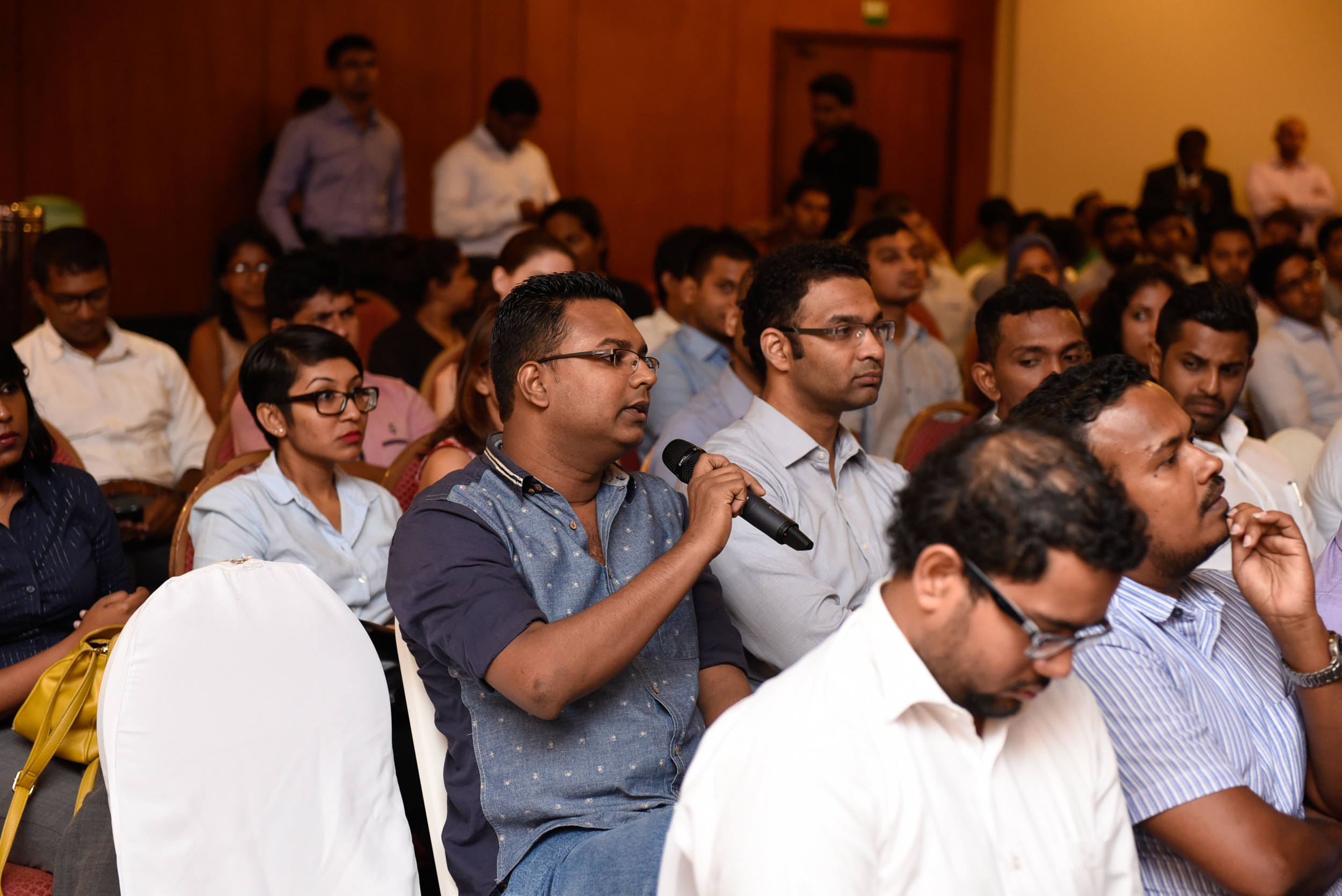Sri Lankan-born economist Dr Ganeshan Wignaraja delivered a public lecture on the question of whether the era of export-led growth is over. Dr Wignaraja is an advisor to the Asian Development Bank with decades of experience in various development organizations, focusing on Asia.
As Asian trade slows down and with the increase of protectionist rhetoric from the west, the model of the East Asian countries, i.e. the export-led growth has been called into question. Dr Wignaraja says that although the returns to such models have now become less, and it is now more difficult, he does not believe the era of export-led growth is over.
For Sri Lanka, he says basic reforms in trade liberalization in the areas of 'para tariffs' is needed, as well as improving delivery, and price quality of services and products. Sri Lanka has failed to get into global value chains with the exception of garments. It hasn't happened in the BPO/ICT sector as expected, said the ADB economist.
Dr Wignaraja says that as China now is moving up value chains, rising wages and a upwardly mobile middle class is making China follow the model of Japan and subsequently South Korea in higher value added production and building innovation capability. This opens up opportunities for Sri Lanka and other ASEAN countries argues Dr Wignaraja. Sri Lanka could attract export oriented Foreign investment from China to replace some of the labour intensive activities.
In a new more difficult trading regime, trading in services is likely to emerge as an important avenue of trade growth says Dr Wignaraja. Sri Lanka should focus on reforming internal barriers to trade in services by addressing skill gaps, trade barriers and infrastructure requirements in the area of basic power and digital infrastructure.
With the expected death of the US-led Trans Pacific Partnership (TPP), the China-focused Regional Comprehensive Economic Partnership (RCEP) is likely to come to fore as the major multi-lateral trade agreement in the region says Dr Wignaraja.
Whilst Sri Lanka should pursue free trade agreements with India, China and other Asian countries, the correct sequence is to figure out the domestic reform agenda rather first and enter into trade agreements rather than the trade agreements dictate the reforms warns Dr Wignaraja.
Commenting on the use of Industrial policy and the government picking winners and sunshine industries in a country like Sri Lanka, Dr Wignaraja said that industrial policy requires a high-level of government capability, which at the moment Sri Lanka lacks, and in such an environment, it's better to follow the market-led approach rather than try out sophisticated industrial policy measures according to the economist.
Dr Wignaraja also urged the policy makers to look into safety-nets and pay attention to the losers of trade liberalization, as addressing their concerns are vital to build support for trade liberalization.




